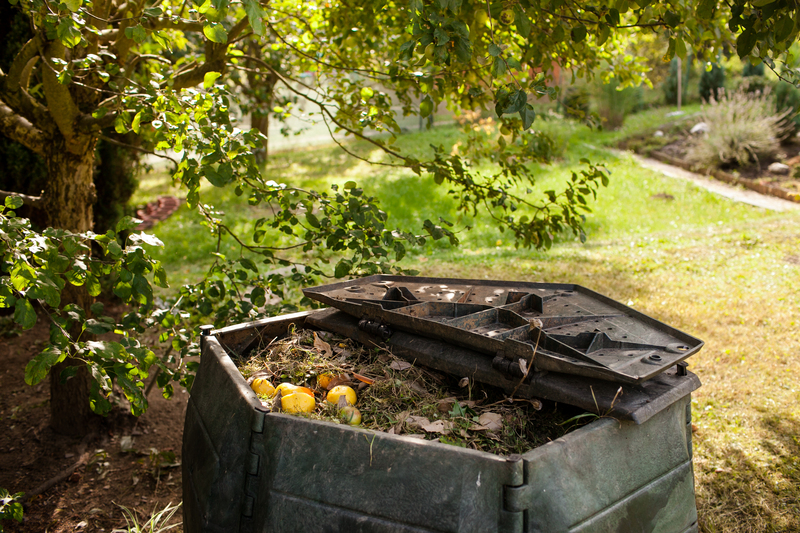A Closer Look at the Builders Skip and Its Uses
When it comes to managing waste on construction sites, the builders skip is an essential tool. Whether you're remodelling your home or overseeing a large commercial project, understanding what a builders skip is--and how best to use it--can make all the difference in efficiency and site safety. In this comprehensive article, we'll take an in-depth look at the builders skip, its sizes, most common uses, and critical tips for getting the most out of your skip hire experience.
What is a Builders Skip?
The builders skip, sometimes known as a construction skip, is a large open-topped container designed for holding and transporting waste. It is most commonly found on construction sites, but its uses extend to domestic and commercial projects as well.
- Standard Size: The traditional builders skip is typically 6 to 8 cubic yards (sometimes referred to as a 6-yard skip or 8-yard skip).
- Sturdy Construction: Made of heavy-duty steel, these skips are designed to withstand the tough conditions of a building site.
- Versatility: Builders skips are suitable for everything from rubble and soil to wood, plastics, and general construction debris.
Why Choose a Builders Skip?
Choosing a builders skip offers several significant advantages, especially during build projects where waste volume can quickly become overwhelming.
- Efficiency: Streamlines waste collection, saving time and money.
- Safety: Helps reduce clutter on worksites, minimising accident risks.
- Environmental Compliance: Supports proper waste segregation and recycling.
- Convenience: Simple drop-and-collect services from most skip hire companies.

Common Sizes of the Builders Skip
While there are several forms of skips available, the builders skip strikes a perfect balance between size and practicality. Here is a breakdown of the most popular skip sizes and their typical uses:
Mini Skips (2-3 Yards)
- Ideal for small domestic projects or garden clear-outs.
- Not usually considered a "builders skip," but useful for comparison.
- Holds approximately 20-30 filled bin bags.
Midi Skips (4-5 Yards)
- Useful for bathroom and kitchen refurbishments.
- Holds around 40-50 bin bags of waste.
Builders Skips (6-8 Yards)
- The most popular skip on building sites across the UK.
- Perfect for substantial home renovations, construction, and demolition projects.
- Holds approximately 60-80 bin bags of waste.
Large Skips (10-16 Yards)
- Mainly used for bulky waste, commercial-sized clearances, or massive residential builds.
- Not suitable for heavy waste like soil and rubble as weight limits can be exceeded.
As you can see, the builders skip provides substantial volume while remaining manageable enough for most residential driveways and accessible construction sites.
Key Uses of a Builders Skip
The builders skip is a cornerstone of construction site management. Its adaptability shines through a wide range of uses that extend far beyond traditional building work.
1. Construction Waste Removal
Perhaps the most obvious use for a builders skip is in the safe and efficient removal of construction waste. Put simply, every construction project generates debris--be it bricks, concrete, plasterboard, timber, or packaging. Having a sturdy builders skip on hand allows your team to dispose of these materials rapidly and safely.
2. Site Clearance
Preparation is key to the success of a construction site. Before building starts, it is often necessary to clear existing structures, garden waste, or accumulated rubbish. Builders skips are ideal for these site clearance tasks, enabling quick and effective removal of bulky, mixed materials.
3. Home Refurbishments and Renovations
Homeowners undertaking extensive renovations will find a builders skip invaluable for disposing of old fixtures, tiles, plaster, and other renovation debris. It simplifies the cleanup phase and allows projects to progress smoothly.
4. Landscaping Projects
Landscaping often creates more waste than anticipated. Soil, sod, branches, and stones can rapidly pile up. A builders skip can handle a mixture of "green" and "hard" landscaping waste, saving multiple trips to the local tip.
5. Demolition Work
Demolition generates heavy, dense waste. Builders skips, constructed from tough steel and designed to carry substantial weight, are perfect for containing everything from bricks and blocks to old parquet floors.
6. Commercial and Industrial Clearances
While many commercial operations choose larger skip sizes, the classic builders skip remains popular for shop refits, warehouse cleanouts, and office renovations because of its balance of capacity and accessibility.
7. Recycling and Responsible Waste Disposal
Cost-effective waste sorting begins with a builders skip. Segregated skips help to ensure recyclable material is sorted and processed properly, aiding your compliance with environmental regulations and green building standards.
Key Benefits of Using a Builders Skip
- Speed and Efficiency: Skip collections can be scheduled, saving time on site cleanup.
- Waste Management: Helps keep the site safe and compliant with building regulations.
- Environmental Benefits: Encourages responsible waste disposal and recycling.
- Cost Savings: Reduces transport and landfill costs compared to frequent trips to a tip.
- Versatility: Suitable for a variety of waste types, from construction debris to household clutter.
Streamlined Project Management
*Skips* keep worksites tidy and productive. A single, central container means less double-handling of waste, and your team can focus on the job at hand instead of constant cleanup.
What Can You Put in a Builders Skip?
A large part of effective waste management is understanding what can and cannot be placed in a builders skip. Although these skips are renowned for their versatility, there are some key limitations all users should be aware of.
- Allowed Materials:
- Concrete, bricks, and rubble
- Wood, doors, and window frames
- Plasterboard and tiles
- Soil (clean)
- Plastic, packaging, and general rubbish
- Metal piping and tools
- Prohibited Items:
- Hazardous waste (asbestos, chemicals, paint, solvents)
- Fridges, freezers, and certain electrical equipment
- Batteries and tyres
- Gas bottles
- Medical waste, including syringes
Always check with your skip hire provider for their specific waste acceptance criteria, as restrictions may vary.
How to Get the Most from Your Builders Skip Hire
1. Choose the Right Size for Your Project
One of the most common mistakes when hiring a builders skip is underestimating or overestimating the amount of waste produced. Talk to your provider about the volume and type of waste you expect, and use their expertise to select the right skip size.
2. Plan Your Placement Carefully
A builders skip should be placed on a flat, accessible surface close to the worksite. If your skip will need to rest on a public highway, check the permit requirements with your local council to avoid fines or removal.
3. Load Efficiently
Maximise space by breaking down large items and packing the skip evenly. Avoid overfilling--most skips should only be loaded up to the top edge, not higher, for safe transport.
4. Segregate Waste Where Possible
If your project generates a mix of materials, consider using multiple skips or builder skip bags to separate recyclables from general waste. This makes recycling easier and is often cheaper in the long run.
Cost Factors for Builders Skip Hire
Hiring a builders skip involves several costs--many of which can be controlled with careful planning.
- Skip Size: Larger skips generally cost more but may offer better value per volume.
- Hire Duration: Many providers offer flexible hire periods, but charges may apply for extended use.
- Location: Urban areas may incur higher delivery charges, especially if disruption or permits are needed.
- Waste Type: Mixed or hazardous waste usually costs more to collect and process.
- Permit Fees: Placing a skip on a public road may require a permit costing anywhere from ?30 to ?100.
To ensure the best value, always compare several skip hire companies and read all terms before booking.
Environmental Impact and Recycling Benefits
Modern builders skips support sustainable construction by contributing to higher recycling rates. Most skip hire firms now process skip contents to recover metals, plastics, and aggregates, significantly reducing landfill use. By sorting your waste and choosing a responsible company, you can ensure your project meets environmental regulations and supports the local recycling industry.

Frequently Asked Questions about Builders Skips
What is the maximum weight for a builders skip?
A standard builders skip typically holds up to 8 tonnes, but always check your hire company's guidelines to avoid excess weight charges.
Do I need a permit to hire a builders skip?
If your skip will be placed on public land (e.g., a road or footpath), you usually need a permit from your local council. Your skip hire company can often arrange this for you.
Can I dispose of hazardous waste in a builders skip?
No. Items such as asbestos, chemicals, and electrical goods must be disposed of following hazardous waste regulations. Discuss alternative disposal methods with your provider.
How soon can a builders skip be delivered?
Most companies offer next-day delivery if booked before mid-afternoon. Always book early during busy periods to secure your preferred dates.
Conclusion: The Enduring Value of the Builders Skip
In conclusion, the builders skip remains a crucial fixture for projects of every scale--from large-scale construction and commercial clearances to domestic renovations. Its robust design, practical capacity, and versatility make it the first choice for efficient waste management. By understanding the different sizes, allowable materials, hire processes, and environmental benefits, you can make the most of your next builders skip hire experience. For any project seeking to achieve safe, cost-effective, and environmentally responsible waste disposal, the builders skip is the gold standard.
Next time you're planning a building or renovation project, remember that the builders skip isn't just a waste container--it's a practical partner in construction progress, safety, and sustainability.